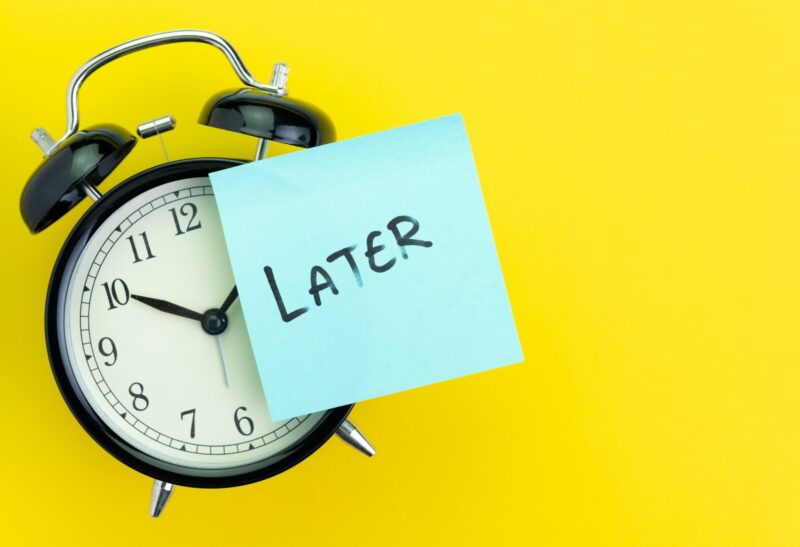Being lazy can actually be a good thing

“I will always choose a lazy person to do a difficult job. Because he will definitely find an easy way to do it.” – Bill Gates.
Being lazy is healthy.
Being lazy makes you successful.
No, I have not gone completely crazy. If you don’t believe me, you should definitely read on. And even if you do, believe me, I recommend reading this post. Or can you guess why being lazy makes you happy?
If you search “laziness” in Google, the first thing that appears, and an overwhelming majority, are smart tips and advice on how to overcome your own laziness, become more effective, be more diligent. Only when you look closer and search longer do you discover hints that being lazy can actually be a good thing.
So it is with the positive effects of your own laziness. They are not obvious, but their good effect is there and cannot be denied. You just have to know how to do it and do it right.
Smart laziness.
And to make it clear from the start: this is about intelligent laziness, not about stupid laziness or even about being lazy at the expense of others.
Being lazy makes you healthy …
What does being lazy mean to you?
When you think about it, what comes to mind?
I think of idleness, doing nothing, rest, deceleration, or contemplation. Of just lying on my couch. But also of putting off difficult or boring tasks. Or about being busy with absolutely unimportant things.
That’s being lazy for me.

If you indulge in any of the aforementioned must-do moments every now and then, you may very well have critics and envious people around you. It doesn’t matter if it’s personal or professional.
It doesn’t matter.
Because a new study shows that it’s a sign of high intelligence to be lazy from time to time.
Why?
Because by being lazy, these smart people give themselves needed breaks. They create moments to catch their breath or to distract themselves and simply take it easy for once.
And it’s these little moments of leisure that can do so much for our health. Because they give us an urgently needed break from the usually stressful or hard working day. Because they give us space for creativity. Because they create distance. Distance, which in turn can be very helpful in solving a problem or simply looking at certain issues from a different perspective.
If you just want to be lazy and still be a little bit active, and really just a little bit, then a walk, a round of forest bathing or simply doing nothing in nature is recommended.
And all that – taking regular breaks, avoiding stress, spending time in nature, being out and about on foot – makes and keeps you healthy.
… as well as successful.
Through these regular and wisely self-imposed breaks, lazy people can also become more successful.
Those who allow themselves a little time out or a break at work, which go beyond the breaks they are actually entitled to, thereby creating the mental space and the necessary impetus to complete upcoming tasks more effectively than their stressed counterparts. Pressure makes legs shake, as we know, and we humans tend to work more effectively and precisely the closer a deadline or completion date approaches.
Lazy people tend not to want to make life too difficult for themselves. For this reason, they often take the path of least resistance and look for simple solutions – just to avoid working too hard or even getting stressed out.
It has certainly happened to each of us at some time or another that the easy-going colleague who apparently didn’t overwork himself has been promoted, praised, or received a bonus. Or? Not every one of these colleagues was lazy, of course. But many seemingly lazy colleagues manage to improve themselves professionally in this way.
Because being smart and skillfully lazy can make you successful. So successful, in fact, that Bill Gates likes to hire such employees to handle difficult tasks. Because they find a pragmatic and less labor-intensive solution.
Being successful. That’s another phenomenon that can’t be killed in our capitalist society. People want to be successful in their lives or, in other words, to have left something behind or to have contributed something important.
That is also a good thing.
But the question must be allowed as to how this is to be achieved. Working more and more is certainly a solution, but probably one that a lazy person would not choose. Since it is well known that being lazy makes you healthy and successful, there are other solutions.
Like this one.
For a little philosophical journey of thought, “I work to live” versus “I live to work”.
The summary?
Why not live for a “target income”?
Let’s do it like koalas or real sloths. Only as much movement and excitement as necessary, as much idleness as possible.
Can’t we humans also be sloths?
In what ways do you like to be lazy? And how do you feel afterward?


